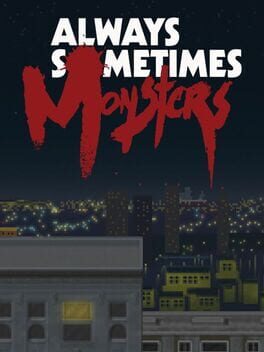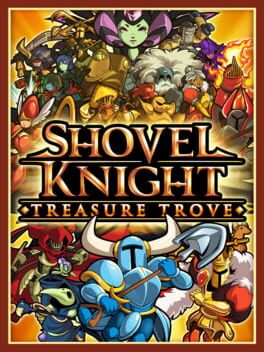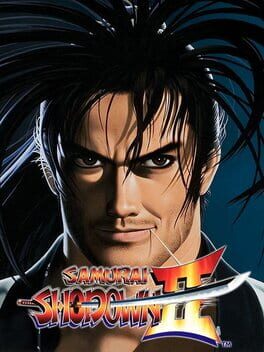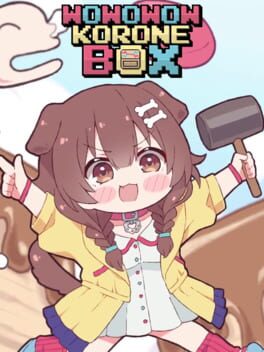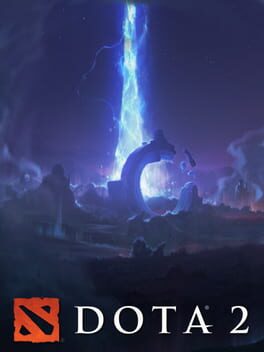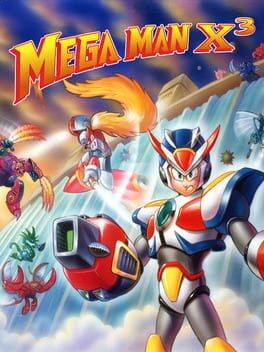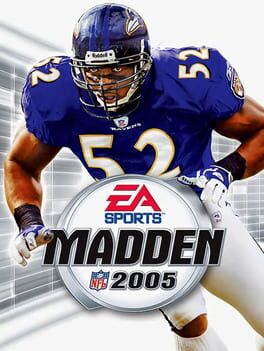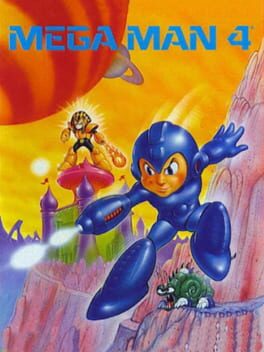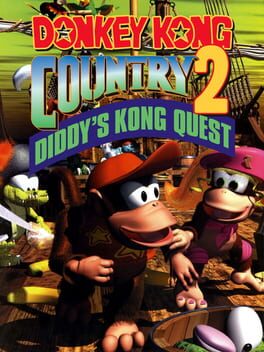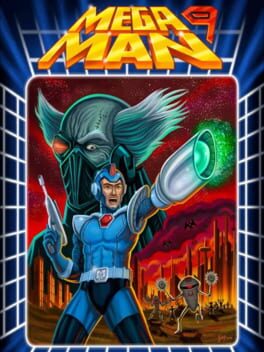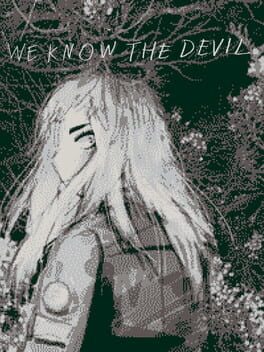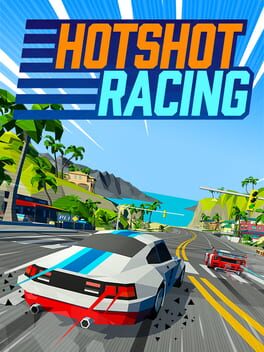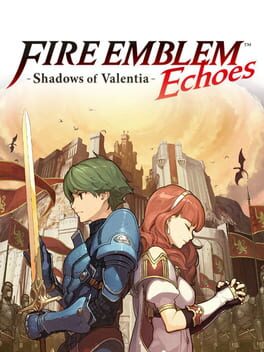Omni
34 Reviews liked by Omni
A game with what I feel is like, a 2010s version of one of those screenplays every single film student in the 90s wrote after seeing Pulp Fiction, between the laughable attempts at tough-guy dialogue in the opening segment and the equally laughable attempts at profundity throughout. Its depictions of poverty, crime, and drug use all feel blaringly inauthentic ("a baggie of heroin" is an all-timer in the annals of bad video game dialogue). I have absolutely no clue why Devolver liked this enough to publish it.
an absolute masterpiece of an old-school action platformer.
so much polish and variety in each corner of this game makes it an absolute must-play for any sane Gaming Enjoyer.
I'll admit that challenging games often scare me as i am sometimes a Little Baby Boy but this game understands how difficulty should work in games and i wish other studios would do the same.
also yacht club is so bonkers for giving us so much more content after the game's main release for free.
easy 5/5
so much polish and variety in each corner of this game makes it an absolute must-play for any sane Gaming Enjoyer.
I'll admit that challenging games often scare me as i am sometimes a Little Baby Boy but this game understands how difficulty should work in games and i wish other studios would do the same.
also yacht club is so bonkers for giving us so much more content after the game's main release for free.
easy 5/5
Samurai Shodown II
1994
Wowowow Korone Box
2021
Dota 2
2013
Mega Man X3
1995
Madden NFL 2005
2004
Mega Man 4
1991
This is my favorite one so far. It keeps all the cool stuff from 3 (the better, tighter level design, the SICK MOVEMENT TECH, generous item spawns), but it’s got a much smoother difficulty curve and basically no blatantly unfair stuff going on. I was also pleasantly surprised at how little the addition of the mega buster really changed how the bosses felt tuned, and I liked it more than I was expecting to. The pacing in this game is so good I don’t even mind that there are TWO castles lmao
The music never quite reached the highs of 2 and maybe I should stop hoping it ever will, but what is here is REALLY solid, probably the most consistent score in the series so far. The graphics are slick, I think the addition of an actual pause menu is probably for the best, and holy shit there’s a real cutscene in this game??? Just the one lol but it’s fun to see things develop even as the hardware is the same and the presentation is ostensibly identical
Mega Man 4 slaps i really like this one!
The music never quite reached the highs of 2 and maybe I should stop hoping it ever will, but what is here is REALLY solid, probably the most consistent score in the series so far. The graphics are slick, I think the addition of an actual pause menu is probably for the best, and holy shit there’s a real cutscene in this game??? Just the one lol but it’s fun to see things develop even as the hardware is the same and the presentation is ostensibly identical
Mega Man 4 slaps i really like this one!
Spec Ops: The Line
2012
great pacing, great characters, great voice acting, great writing, everything is here! even the gameplay isn't terrible like i thought it'd be, at absolute worst its just forgettable
edit: looking at top reviews of this game is really confusing to me. obviously this is a critique of the military and military shooters as a whole, but it's not you who's making the decisions. you're not a silent military man, the game isn't in a first person perspective, the player is just guiding walker through what he would've done anyway.
edit: looking at top reviews of this game is really confusing to me. obviously this is a critique of the military and military shooters as a whole, but it's not you who's making the decisions. you're not a silent military man, the game isn't in a first person perspective, the player is just guiding walker through what he would've done anyway.
Donkey Kong Country 2: Diddy’s Kong Quest (or Diddy Kong’s Quest, as I and many other illiterate 8 year olds knew it) was a game that held a powerful lustre for me as a kid. As a rascal raised on Diddy Kong Racing and attitudinal promotional artwork from Nintendo Official Magazine, I found that Diddy Kong projected untold levels of Cool that could be matched only by the almighty-90s Bart Simpson himself. Something about a baseball cap with Nintendo written on it was just so insanely Cool to me. My undeveloped baby brain could barely handle it! And he wore the cap backwards! And played the guitar while wearing his cap backwards! Oh, I wanted to be Diddy Kong so badly.
Despite being a prime child of the SNES era, I never owned a SNES. When my brother and I asked for a SNES for my birthday, my dad got us a NES by way of an honest money-saving mistake - he didn’t know the NES and the SNES were two entirely separate and incompatible computer game machines, which was a totally forgivable thing to believe in 1996. This was a long time ago, back in the days when “the Nintendo” really was just “the Nintendo” to almost everyone on the planet. Diddy Kong remained eternally out of reach.
Our friend up the road’s big brother did have a SNES though, and sometimes he let us all play it when he wasn’t calling us f#cking r#tards for not knowing about the 1-1 shortcut to Birdo in Super Mario Bros 2. He’d never let us play the good games, though - for some sadistic unknown big brother reason, we were always stuck with the Mickey Mouse platformers and Clayfighter and Mortal Kombat on the Super Game Boy. Diddy Kong’s Quest remained on the high shelves with the sticky magazines and the empty bottles of Jack Daniels that Big Brother had found in the bushes at the park, and I never plucked up the courage to take the cartridge down and replace Rocky Rodent with a game that Nintendo Official Magazine had once declared to be Certified: Awesome. All this ritual and ceremony for a video game about a monkey who played the guitar with his hat on the wrong way round only gave it more power. Diddy Kong’s Quest took up way more than 4MB of space in my soft little brain.
A few years later, I got on the internet. While scouring video game message boards in a vain attempt to find out when Super Mario 128 was coming to the Nintendo Dolphin, I found out about emulators and ROMs. A few weeks later, after workshopping a convincing story to tell the FBI when they raided my house for illegally downloading a video game, I got my first emulator and ROM - ZSNES, and my very own copy of donkey_kong_country_2_diddy_kongs_quest.zip. I played it for a couple of minutes, but was too afraid of a life spent in jail to really appreciate the momentousness of the occasion. A few days later, while looking for Bloody Roar: Primal Rage cheat codes, I discovered you could look up pictures of naked ladies on the internet. And I forgot about Donkey Kong Country 2: Diddy’s Kong Quest.
A few years later, after many Youtube-watching 12 year olds harassed @NintendoAmerica about it every day on Twitter, Nintendo released Donkey Kong Country 2: Diddy’s Kong Quest on the Nintendo Switch Online service, and a man in his thirties decided to play it for the first time. Properly, mind you. Without save states, or that really awkward rewind function - the one that’s not as useful as the rewind function that the man remembered using on ZSNES while drenched in guilt-ridden sweat during an illegal gaming session some decades prior.
Turns out that playing games properly is a fucking stupid idea. This game is a really fucking annoying piece of shit and I hate it. Diddy Kong Country 2: Diddy Kong Quest came out on the Nintendo Switch a year ago, and I’ve only just beaten it today. After much SHITting and FUCKing about how brutally unfair it is, I crawled the stupid backwards-capped guitar-playing prick Diddy Kong to a measly 40%ish completion stat. Fuck you and your game, Diddy Kong. Never meet your heroes, because you’ll only get your dick crushed by falling platforms.
It may be an annoying piece of shit, but it’s also a beautiful work of art. Beautiful in ways I probably wouldn’t have appreciated had I got it for my 9th birthday or snuck it into someone else’s SNES or tried to play it on a Compaq Presario 95’s keyboard. Elegant rotosprite work comes together with the best music that the SNES chip and David Wise were capable of to create a really unique dream-ape gamefeel. I don’t need to say much more than that about the game’s presentation - presumably most people on here have read that one Onion article that’s all like “Man Tasked With Making Score for a Monkey Riding a Swordfish Underwater Creates Transcendent Piece of Music” or whatever. Just don’t play it past the first few worlds if you want to preserve the crystalline beauty of the memory of your past. Some games are better played on your mind’s eye than a SNES.
Despite being a prime child of the SNES era, I never owned a SNES. When my brother and I asked for a SNES for my birthday, my dad got us a NES by way of an honest money-saving mistake - he didn’t know the NES and the SNES were two entirely separate and incompatible computer game machines, which was a totally forgivable thing to believe in 1996. This was a long time ago, back in the days when “the Nintendo” really was just “the Nintendo” to almost everyone on the planet. Diddy Kong remained eternally out of reach.
Our friend up the road’s big brother did have a SNES though, and sometimes he let us all play it when he wasn’t calling us f#cking r#tards for not knowing about the 1-1 shortcut to Birdo in Super Mario Bros 2. He’d never let us play the good games, though - for some sadistic unknown big brother reason, we were always stuck with the Mickey Mouse platformers and Clayfighter and Mortal Kombat on the Super Game Boy. Diddy Kong’s Quest remained on the high shelves with the sticky magazines and the empty bottles of Jack Daniels that Big Brother had found in the bushes at the park, and I never plucked up the courage to take the cartridge down and replace Rocky Rodent with a game that Nintendo Official Magazine had once declared to be Certified: Awesome. All this ritual and ceremony for a video game about a monkey who played the guitar with his hat on the wrong way round only gave it more power. Diddy Kong’s Quest took up way more than 4MB of space in my soft little brain.
A few years later, I got on the internet. While scouring video game message boards in a vain attempt to find out when Super Mario 128 was coming to the Nintendo Dolphin, I found out about emulators and ROMs. A few weeks later, after workshopping a convincing story to tell the FBI when they raided my house for illegally downloading a video game, I got my first emulator and ROM - ZSNES, and my very own copy of donkey_kong_country_2_diddy_kongs_quest.zip. I played it for a couple of minutes, but was too afraid of a life spent in jail to really appreciate the momentousness of the occasion. A few days later, while looking for Bloody Roar: Primal Rage cheat codes, I discovered you could look up pictures of naked ladies on the internet. And I forgot about Donkey Kong Country 2: Diddy’s Kong Quest.
A few years later, after many Youtube-watching 12 year olds harassed @NintendoAmerica about it every day on Twitter, Nintendo released Donkey Kong Country 2: Diddy’s Kong Quest on the Nintendo Switch Online service, and a man in his thirties decided to play it for the first time. Properly, mind you. Without save states, or that really awkward rewind function - the one that’s not as useful as the rewind function that the man remembered using on ZSNES while drenched in guilt-ridden sweat during an illegal gaming session some decades prior.
Turns out that playing games properly is a fucking stupid idea. This game is a really fucking annoying piece of shit and I hate it. Diddy Kong Country 2: Diddy Kong Quest came out on the Nintendo Switch a year ago, and I’ve only just beaten it today. After much SHITting and FUCKing about how brutally unfair it is, I crawled the stupid backwards-capped guitar-playing prick Diddy Kong to a measly 40%ish completion stat. Fuck you and your game, Diddy Kong. Never meet your heroes, because you’ll only get your dick crushed by falling platforms.
It may be an annoying piece of shit, but it’s also a beautiful work of art. Beautiful in ways I probably wouldn’t have appreciated had I got it for my 9th birthday or snuck it into someone else’s SNES or tried to play it on a Compaq Presario 95’s keyboard. Elegant rotosprite work comes together with the best music that the SNES chip and David Wise were capable of to create a really unique dream-ape gamefeel. I don’t need to say much more than that about the game’s presentation - presumably most people on here have read that one Onion article that’s all like “Man Tasked With Making Score for a Monkey Riding a Swordfish Underwater Creates Transcendent Piece of Music” or whatever. Just don’t play it past the first few worlds if you want to preserve the crystalline beauty of the memory of your past. Some games are better played on your mind’s eye than a SNES.
Mega Man 9
2008
We Know the Devil
2015
This review contains spoilers
An excellent short horror story about the act of Othering by both mainstream society and other Othered youth living under the pressure of that mainstream society. Communicates the latter of the two through a sublimely simple counter behind the scenes. The way in which the tone of the horror differs between a playthrough where you leave a friend to be Othered and one where you all embrace your Othered nature together effortlessly highlights the thematic idea that it's better to be an Other and take care of your fellow Others than it is to push down that undeniable part of yourself to fit into society and abandon the only people that truly understand you.
Hotshot Racing
2020
With the success of their work on the Sonic All-Star Racing series, Sumo Digital has amassed a well of notoriety over the years. deservingly so as well, the All-Star Racing linage is representative of the apex of the kart racer genre-- not yet has another kart racer struck that same perfect harmony between pure, unadulterated chaos and deterministic, mechanical soundness. Owing to this legacy, many eyes were on their 2020 release, Hotshot Racing. However, Sumo Digital swiftly dashed all theories of their latest project being even tangentially related to their more recent backlog beyond the fact it's a racer. No, Hotshot Racing was something far more daring than All-Star Racing-- it's a small-scale collaboration between newborn indie studio Lucky Mountain Games that aims to revive a subgenre long dormant.
Arcade racers, a subgenre left in the dust by the annals of time. A subgenre welded tight between the more realistic, simulation-esque racers and the fantastical, off-the-wall kart racers. Sumo Digital was looking towards the likes of Daytona USA, Hard Drivin', and Winning Run. Its poppy, non-textured graphics do more than enough work harkening back to its forefathers, but to further drive its ambitions home the game interweaves an "easy to learn, hard to master" philosophy into every fabric of its design. Hotshot Racing is far from being the first aspiring indie project seeking to feel a hibernating niche though, far from it. Routinely, these works fall into the pitfall of faintly imitating their forefathers on a superficial level but failing to grasp how any of their core components culminate to form a cohesive whole.
Hotshot Racing kicks it off on the right foot, as on a presentation level it exhibits a level of greater nuance. Instead of simply deriving from its inspirations, Hotshot Racing contemplates the limitation affronted to those games due to computer hardware and decidedly takes the next step. The game's art direction is simply an evolution of other vertex racers featuring a more realized, animated world. The backdrop of each track is extensively animated and the game has four distinct biomes to boot. While these biomes share many of the same assets, each one holds hosts to their own signature locale and sometimes even sport different color palettes. The racers themselves are more individualized, each bearing their own costumes, backstory, ending sequence, and car selection. For the most dedicated players, you can even personalize each of the game's twenty-four cars. In a genre that thrives on the players that dedicate hundreds of hours optimizing their times, superfluous side-content such as this ends ensuring this niche audience will have content to further engross themselves into the game's universe.
Nevertheless, these charming aesthetical additions are of little importance in comparison to mechanical depth when it comes to securing longevity. The centerpiece of the game is the drifting mechanic. Drifting has a weighty, yet tangible handling to it. The reward to it is high; gracefully turning a corner not only maintains your speed but also charges your ever-vital boost gauge. However, the slightest error in your handling can be utterly devastating. It's a simple yet potent dynamic that lends itself to intricate mechanical exploration. On top of that, you have Hotshot Racing's diverse car selection. Its assortment of vehicles forms this nice sense of player expression by throwing a barrage of intriguing, meaningful variables into the mix. Do you want a higher acceleration so you can swiftly speed the competition? Do you want a more accurate drift so you can cut turns with pinpoint precision? Do you want a heightened top speed so you can bolt through the track in style? Or, do you want a mix of everything even?
Such mechanical refinement is worthy of being appreciated and its subtlety is amplified by Hotshot Racing's twenty assorted racetracks. There are five Grand Prixs, each of them journeying through the game's previously mentioned biomes in addition to three different "difficulty levels". These "difficulty levels" are less so representative of how brutally the AI will outpace and more so an indicator of what CC you will be racing at. The higher the CC, the more calamitous the smallest errors are. The track layouts themselves are far from being bombastic, but the delicate touch of Hotshot Racing's drifting mechanic keeps them feeling diversified. These courses act as a test of overall mechanical mastery, with each one slightly remixing itself in favor of one specific skill to spice things up. It gives the entire game this holistic feeling, and by extension further highlights player individuality. I adore how adamant Hotshot Racing is about being a laser-focused, expressive racing experience... which is why I find it astronomically disappointing how the game's balancing can't keep up with its diversity whatsoever.
The Time Trial leaderboard is dominated by a band of three cars out of an array of twenty-four. To be frank, it's terribly demoralizing to see all the time one invested cultivating their playstyle be thrown to the wayside due to unjust balancing. It would be disingenuous to say that these balancing issues are prominent on a casual level, I cleared each of the Grand Prixs on Expert before I even delve into Time Trial Mode. However, it cannot be understated how much this tipped scale spoils the game's longevity. When a majority of the roster pales in comparison to a small, select group of them, it accelerates the game's natural skill progression an unprecedented amount. When you're attempting to play to perfection, why explore the possibilities of the other vehicles that are ever so tremendously outclassed by their peers? It's no wonder the game has struggled to gain any semblance of a community, the game's solved. Only a small niche of players are going to dedicate the time to a racer to truly delve into this level of technicality, but considering the fact it's these same players that keep a game alive for years on end, it's devastating how shallow Hotshot Racing's skill pool is.
This leaves us with the game's aforementioned Grand Prixs and AIs, the latter of which holding host to their own bundle of issues and highlights yet another balancing issue. A common complaint with racers is their infamous rubber-banding AI, and I want to get it out and the way and say that is absolutely not the issue with the game. Rubber-banding AIs are cool, they lend way to a form of dynamic difficulty that gives racer this evergreen kind of content. What is a problem is how overtly aggressive they are. For some bizarre reason, the AI tends to hones into the player in an attempt to tailspin you. Mind you, going for a tailspin at Expert level speeds is a borderline infeasible task that yields high risk and little reward. Yet, the AI manages to accomplish the feat with pinpoint precision every single time they go for it. They not doing this as a desperate attempt to win the race, as doing a tailspin often causes you more speed than what it's worth-- no, they do it specifically to screw over you and only you. Even in Expert It's not impossible to come back from a tailspin, but that does not excuse how much it diminishes the value of skillful play. When you're only one unlucky tailspin away from losing all your progress, none of the race feels like it matters up till the very last lap.
Don't get me wrong however, these AI are still easily exploitable despite how much it seems like they hate you. There's a trick you can do to win every single Grand Prix with ease, and it applies to PvP races as well to an extent-- never get in first place. It is effectually impossible for the 1st-4th place AI to not be in close proximity of you as long as you're in the 2nd-4th place range yourself. So here's the gameplan: on the final lap, get into 2nd-4th place around the second half of the final lap. Then, right before the finish line, use the boost you accumulated to dash right past the competition. This works on every difficulty; the AI will never retaliate by boosting themselves, they will always surrender themselves and let you easily breeze past them. It doesn't even matter if you fail to accumulate the boost you need by drifting, by simply tailing behind another racer you build boost. This plays into 1st place being at disadvantage rather or not you're playing with the AI or your friends, slipstreaming is too strong of a comeback mechanic for genuine, skillful play to feel rewarded. This game's core racing is fundamentally broken to such an astonishing degree, the deeper I explored the game the more it felt like it was directly insulting me for trying to play to its expectations.
Once you've broken the Grand Prix Mode and gave up on the idea of competing in Time Trial, the game leaves you with a handful of additional casual modes. First, you have "Cops & Robbers", a mode in which you amass money by clearing checkpoints and ramming into other drivers. By virtue of this mode rewarding the same predatory aggression AIs exhibit in your standard race and the game's handling not being equipped to handle pinpoint aggression even halfway as well as the AI makes it out to be, this mode isn't all that fun. Then you have "Drive or Explode", a mode where you have to maintain a speed that is perpetually rising or, as the name says, you'll explode. Honestly it's by far the best mode the game has to offer; it stresses the game's fundamentals while lessening the value of obtaining first place. First place is still the chief victory condition, but the survivability aspect adds a real nice dynamic to it all. Finally, you have "Barrel Barrage", a mode where each racer is given a Mario Kart banana every time they pass a checkpoint. It's honestly not as chaotic as it sounds, you're still playing the same game and the AI isn't smart enough to strategically place barrels to begin with. Overall, outside of Drive or Explode, these modes are rather boring diversions at best and are far from being the fun, casual distractions they set out to be.
I've gathered a vast amount of respect for Sumo Digital over the years, so I admittedly went into Hotshot Racing with high hopes. While I initially considered the game a home-run, that initial high grew into confusion, and that confusion grew into frustration, and that frustration grew into apathy. Needless to say, Lucky Mountain Games and Sumo Digital missed the mark. I dunno which studio was the one leading development, but ultimately it doesn't matter. They were so close to clutching what makes arcade racers tick, but it instead holds a rudimentary grasp on what made its forefathers and other racers in general hold so much longevity. With it failing on the single-player front and failing on the hardcore front, I struggle to find the meaning of Hotshot Racing. No more what perspective you look at the game from, it's a fundamentally failed game that I cannot in good faith recommend. Maybe if you're looking for five or so hours of innocent fun I could say give it a shot, but the fact of the matter is Hotshot Racing is an unfortunate exemplification of one the most painful kind of games-- the more you try to love it, the more it hurts to play it.
(shoutouts to @shininghubee/@gunshoots1 on twitter for gifting me the game btw go watch goldran for them)
Arcade racers, a subgenre left in the dust by the annals of time. A subgenre welded tight between the more realistic, simulation-esque racers and the fantastical, off-the-wall kart racers. Sumo Digital was looking towards the likes of Daytona USA, Hard Drivin', and Winning Run. Its poppy, non-textured graphics do more than enough work harkening back to its forefathers, but to further drive its ambitions home the game interweaves an "easy to learn, hard to master" philosophy into every fabric of its design. Hotshot Racing is far from being the first aspiring indie project seeking to feel a hibernating niche though, far from it. Routinely, these works fall into the pitfall of faintly imitating their forefathers on a superficial level but failing to grasp how any of their core components culminate to form a cohesive whole.
Hotshot Racing kicks it off on the right foot, as on a presentation level it exhibits a level of greater nuance. Instead of simply deriving from its inspirations, Hotshot Racing contemplates the limitation affronted to those games due to computer hardware and decidedly takes the next step. The game's art direction is simply an evolution of other vertex racers featuring a more realized, animated world. The backdrop of each track is extensively animated and the game has four distinct biomes to boot. While these biomes share many of the same assets, each one holds hosts to their own signature locale and sometimes even sport different color palettes. The racers themselves are more individualized, each bearing their own costumes, backstory, ending sequence, and car selection. For the most dedicated players, you can even personalize each of the game's twenty-four cars. In a genre that thrives on the players that dedicate hundreds of hours optimizing their times, superfluous side-content such as this ends ensuring this niche audience will have content to further engross themselves into the game's universe.
Nevertheless, these charming aesthetical additions are of little importance in comparison to mechanical depth when it comes to securing longevity. The centerpiece of the game is the drifting mechanic. Drifting has a weighty, yet tangible handling to it. The reward to it is high; gracefully turning a corner not only maintains your speed but also charges your ever-vital boost gauge. However, the slightest error in your handling can be utterly devastating. It's a simple yet potent dynamic that lends itself to intricate mechanical exploration. On top of that, you have Hotshot Racing's diverse car selection. Its assortment of vehicles forms this nice sense of player expression by throwing a barrage of intriguing, meaningful variables into the mix. Do you want a higher acceleration so you can swiftly speed the competition? Do you want a more accurate drift so you can cut turns with pinpoint precision? Do you want a heightened top speed so you can bolt through the track in style? Or, do you want a mix of everything even?
Such mechanical refinement is worthy of being appreciated and its subtlety is amplified by Hotshot Racing's twenty assorted racetracks. There are five Grand Prixs, each of them journeying through the game's previously mentioned biomes in addition to three different "difficulty levels". These "difficulty levels" are less so representative of how brutally the AI will outpace and more so an indicator of what CC you will be racing at. The higher the CC, the more calamitous the smallest errors are. The track layouts themselves are far from being bombastic, but the delicate touch of Hotshot Racing's drifting mechanic keeps them feeling diversified. These courses act as a test of overall mechanical mastery, with each one slightly remixing itself in favor of one specific skill to spice things up. It gives the entire game this holistic feeling, and by extension further highlights player individuality. I adore how adamant Hotshot Racing is about being a laser-focused, expressive racing experience... which is why I find it astronomically disappointing how the game's balancing can't keep up with its diversity whatsoever.
The Time Trial leaderboard is dominated by a band of three cars out of an array of twenty-four. To be frank, it's terribly demoralizing to see all the time one invested cultivating their playstyle be thrown to the wayside due to unjust balancing. It would be disingenuous to say that these balancing issues are prominent on a casual level, I cleared each of the Grand Prixs on Expert before I even delve into Time Trial Mode. However, it cannot be understated how much this tipped scale spoils the game's longevity. When a majority of the roster pales in comparison to a small, select group of them, it accelerates the game's natural skill progression an unprecedented amount. When you're attempting to play to perfection, why explore the possibilities of the other vehicles that are ever so tremendously outclassed by their peers? It's no wonder the game has struggled to gain any semblance of a community, the game's solved. Only a small niche of players are going to dedicate the time to a racer to truly delve into this level of technicality, but considering the fact it's these same players that keep a game alive for years on end, it's devastating how shallow Hotshot Racing's skill pool is.
This leaves us with the game's aforementioned Grand Prixs and AIs, the latter of which holding host to their own bundle of issues and highlights yet another balancing issue. A common complaint with racers is their infamous rubber-banding AI, and I want to get it out and the way and say that is absolutely not the issue with the game. Rubber-banding AIs are cool, they lend way to a form of dynamic difficulty that gives racer this evergreen kind of content. What is a problem is how overtly aggressive they are. For some bizarre reason, the AI tends to hones into the player in an attempt to tailspin you. Mind you, going for a tailspin at Expert level speeds is a borderline infeasible task that yields high risk and little reward. Yet, the AI manages to accomplish the feat with pinpoint precision every single time they go for it. They not doing this as a desperate attempt to win the race, as doing a tailspin often causes you more speed than what it's worth-- no, they do it specifically to screw over you and only you. Even in Expert It's not impossible to come back from a tailspin, but that does not excuse how much it diminishes the value of skillful play. When you're only one unlucky tailspin away from losing all your progress, none of the race feels like it matters up till the very last lap.
Don't get me wrong however, these AI are still easily exploitable despite how much it seems like they hate you. There's a trick you can do to win every single Grand Prix with ease, and it applies to PvP races as well to an extent-- never get in first place. It is effectually impossible for the 1st-4th place AI to not be in close proximity of you as long as you're in the 2nd-4th place range yourself. So here's the gameplan: on the final lap, get into 2nd-4th place around the second half of the final lap. Then, right before the finish line, use the boost you accumulated to dash right past the competition. This works on every difficulty; the AI will never retaliate by boosting themselves, they will always surrender themselves and let you easily breeze past them. It doesn't even matter if you fail to accumulate the boost you need by drifting, by simply tailing behind another racer you build boost. This plays into 1st place being at disadvantage rather or not you're playing with the AI or your friends, slipstreaming is too strong of a comeback mechanic for genuine, skillful play to feel rewarded. This game's core racing is fundamentally broken to such an astonishing degree, the deeper I explored the game the more it felt like it was directly insulting me for trying to play to its expectations.
Once you've broken the Grand Prix Mode and gave up on the idea of competing in Time Trial, the game leaves you with a handful of additional casual modes. First, you have "Cops & Robbers", a mode in which you amass money by clearing checkpoints and ramming into other drivers. By virtue of this mode rewarding the same predatory aggression AIs exhibit in your standard race and the game's handling not being equipped to handle pinpoint aggression even halfway as well as the AI makes it out to be, this mode isn't all that fun. Then you have "Drive or Explode", a mode where you have to maintain a speed that is perpetually rising or, as the name says, you'll explode. Honestly it's by far the best mode the game has to offer; it stresses the game's fundamentals while lessening the value of obtaining first place. First place is still the chief victory condition, but the survivability aspect adds a real nice dynamic to it all. Finally, you have "Barrel Barrage", a mode where each racer is given a Mario Kart banana every time they pass a checkpoint. It's honestly not as chaotic as it sounds, you're still playing the same game and the AI isn't smart enough to strategically place barrels to begin with. Overall, outside of Drive or Explode, these modes are rather boring diversions at best and are far from being the fun, casual distractions they set out to be.
I've gathered a vast amount of respect for Sumo Digital over the years, so I admittedly went into Hotshot Racing with high hopes. While I initially considered the game a home-run, that initial high grew into confusion, and that confusion grew into frustration, and that frustration grew into apathy. Needless to say, Lucky Mountain Games and Sumo Digital missed the mark. I dunno which studio was the one leading development, but ultimately it doesn't matter. They were so close to clutching what makes arcade racers tick, but it instead holds a rudimentary grasp on what made its forefathers and other racers in general hold so much longevity. With it failing on the single-player front and failing on the hardcore front, I struggle to find the meaning of Hotshot Racing. No more what perspective you look at the game from, it's a fundamentally failed game that I cannot in good faith recommend. Maybe if you're looking for five or so hours of innocent fun I could say give it a shot, but the fact of the matter is Hotshot Racing is an unfortunate exemplification of one the most painful kind of games-- the more you try to love it, the more it hurts to play it.
(shoutouts to @shininghubee/@gunshoots1 on twitter for gifting me the game btw go watch goldran for them)
An absolutely bizarre spectacle of a remake trying it's damned hardest not to fix any issue the original unspeakably dated game had. It's seriously comical how much this game tries to not address any flaw the game originally had and just tack on more shiny stuff to essentially polish a turd. The shiny stuff is cool but the fact is, this remains a turd.
Fallout
1997
Fallout is a very interesting game but, in the modern day, it is mostly interesting in the way it is remembered (or, rather, mis-remembered).
People talk about how satirical it is but it really isn't. It has occasional comedy to it, mostly in the form of irreverence, but it never quite has anything to say about what it's joking about. It just is what it is.
The other major thing people like to tout is that it's anti-nukes but it really isn't. It doesn't really have anything to say at all. At the very end, there's even an option for you to set off a nuke and it's not even treated as a bad thing, just as a different way to achieve your goal.
With old games like this, I think there's always a question of 'is this worth going back to' and I think that for Fallout 1 it's a firm 'No'. Mechanically it's very rough. Exploring the world feels tedious and the combat is a bit like trudging through mud. While the writing has its moments, it is extremely uneven with most of it landing in the 'mediocre-to-bad' range. And I've never found the general Fallout setting or lore to be particularly intriguing so this game didn't have much to go back to for me, but that's a much more personal thing than the rest of this.
It's a game of the past and I think that it should be left there. While I think there's some valid arguments to be made that it's a historically important game, I'm not sure I'd fully agree with any of that. Other games were more important and influential in just about every way and this game only feels notable because of the Bethesda RPGs that came later in the franchise. If it weren't for those, I think it'd mostly be remembered as this odd little thing that came and went.
People talk about how satirical it is but it really isn't. It has occasional comedy to it, mostly in the form of irreverence, but it never quite has anything to say about what it's joking about. It just is what it is.
The other major thing people like to tout is that it's anti-nukes but it really isn't. It doesn't really have anything to say at all. At the very end, there's even an option for you to set off a nuke and it's not even treated as a bad thing, just as a different way to achieve your goal.
With old games like this, I think there's always a question of 'is this worth going back to' and I think that for Fallout 1 it's a firm 'No'. Mechanically it's very rough. Exploring the world feels tedious and the combat is a bit like trudging through mud. While the writing has its moments, it is extremely uneven with most of it landing in the 'mediocre-to-bad' range. And I've never found the general Fallout setting or lore to be particularly intriguing so this game didn't have much to go back to for me, but that's a much more personal thing than the rest of this.
It's a game of the past and I think that it should be left there. While I think there's some valid arguments to be made that it's a historically important game, I'm not sure I'd fully agree with any of that. Other games were more important and influential in just about every way and this game only feels notable because of the Bethesda RPGs that came later in the franchise. If it weren't for those, I think it'd mostly be remembered as this odd little thing that came and went.
